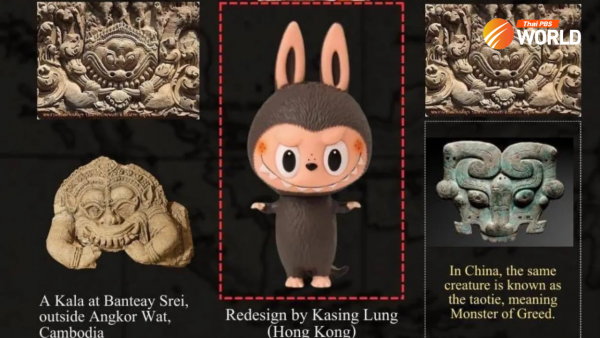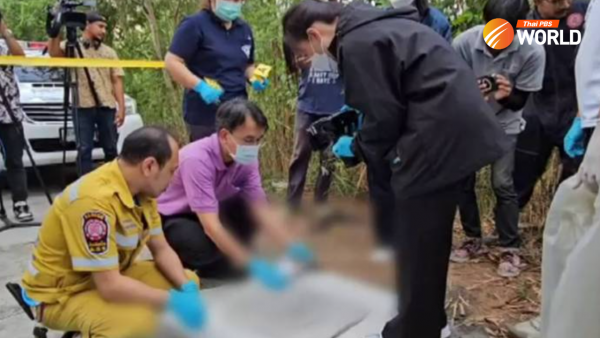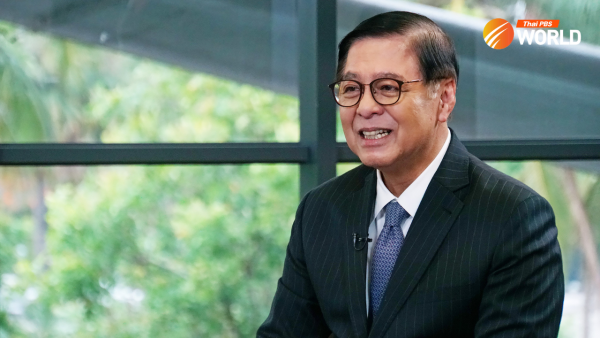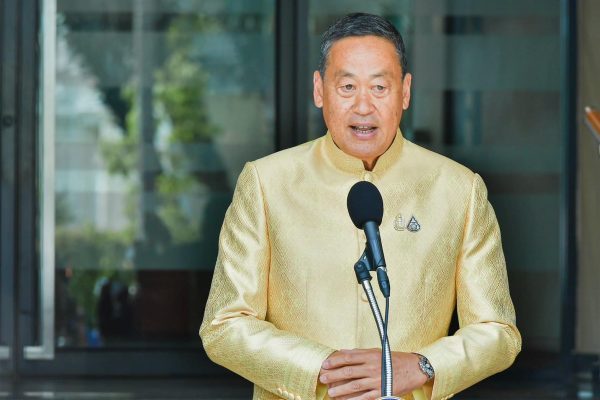Thailand’s political landscape changing fast as new parties erupt

The newly formed Ruam Thai Sang Chart Party sounds very familiar, especially since it carries the same name as the government initiative launched to fight the COVID-19 pandemic.
Despite government denials, observers believe the new party is connected with the “Ruam Thai Sang Chart” (Uniting Thais to Build the Nation) campaign launched by Prime Minister Prayut Chan-o-cha last June. The campaign called on Thais to unite and build a “great Thailand” amid the coronavirus outbreak.
Prayut last week denied any knowledge of the new party and whether it has been established as a “substitute” in case the ruling Palang Pracharath Party is hit by a political “accident”.
He also said he would not change the name of his COVID-fighting initiative because he was the first to come up with it. Meanwhile, he said, he was considering asking the Election Commission (EC) whether the name could be reused by a political party.
The Ruam Thai Sang Chart Party is waiting for the EC to approve its registration.
Backup parties
The party is widely believed to have been set up as a back-up in case Palang Pracharath is hit by legal trouble.
Yuthaporn Issarachai, a political scientist at Sukhothai Thammathirat Open University, believes the new party may have to step in to replace Palang Pracharath, which is facing several lawsuits that could potentially end in it being dissolved.
He also pointed that current legislation, including the Political Party Act, was designed to make it difficult to launch parties but easier to dissolve them.
“Hence, it’s not unusual for a political party to have a ‘spare’ [substitute] just in case,” the analyst said.
History supports that view. Over the past 14 years, at least five key parties – Thai Rak Thai, People’s Power, Thai Raksa Chart, Chart Thai and Future Forward – have been disbanded by the Constitutional Court for different reasons.
The ruling Palang Pracharath could be next if it is found guilty of certain allegations, including allowing outsiders to campaign for the party or attend its meetings, and a case involving a Nakhon Si Thammarat by-election.
Titipol Phakdeewanich, political science dean at Ubon Ratchathani University, also believes the new party is a back-up for Palang Pracharath, though he thinks the latter will be spared dissolution.
If the ruling party escapes dissolution, then the new party would stand by as a “branch” for Palang Pracharath, Yuthaporn added.
Adjusting to electoral system
The new mixed-member apportionment (MMA) electoral system, where a single ballot is used to cast votes for constituency candidates and to calculate party seats, has been slammed for favouring small and medium-sized parties at the expense of larger ones like the opposition Pheu Thai.
In the 2019 general election, the MMA calculation saw the party affiliated with fugitive former PM Thaksin Shinawatra win the largest number of constituency seats, but no party-list seats. The number of its constituency seats had exceeded its share under the complex and opaque MMA system.
Hence, setting up a branch party – which is compared to breaking a large banknote into smaller ones – became a popular tactic to get around the ceiling on party-list seats that can be won.
“As long as the election regulation is not amended, branch parties will keep getting formed,” Yuthaporn said.
The analyst puts the forming of substitute parties down to the political disruption caused by the junta-sponsored Constitution and its Political Party Act.
“It’s a challenging time for politicians. Even big parties like Pheu Thai are having to readjust themselves,” Yuthaporn said.
Gearing up for new polls
At the start of 2021, politicians began launching new parties – sparking speculation that a new election might be held soon.
In January, royalist politician Warong Dechgitvigrom decided to transform his Thai Pakdee group into a full-fledged political party to combat what he called a “movement to overthrow the monarchy”.
Last week, the Thai Sang Thai (Thais Build Thais) party set up by former Pheu Thai strategist Khunying Sudarat Keyuraphan was approved by the EC. Sudarat had walked out on Pheu Thai in November last year after an internal power struggle.
Veteran politician Chaturon Chaisang, former chief strategist of Thai Raksa Chart Party, a now-dissolved Pheu Thai offshoot, is reportedly forming the New Pathway Party with former Pheu Thai MPs.
However, observers say the formation of new parties is not an indicator that an election is imminent.
“They’re just gearing up for the next general election [in the next two years]. Starting preparations two years ahead is not too early,” Titipol said.
He pointed out that parties have a lot to do before they are ready to run in an election, including raising funds, seeking party members and recruiting candidates.
“I think the Prayut government will stay in power until its term ends in 2023,” he added.
By Thai PBS World’s Political Desk






